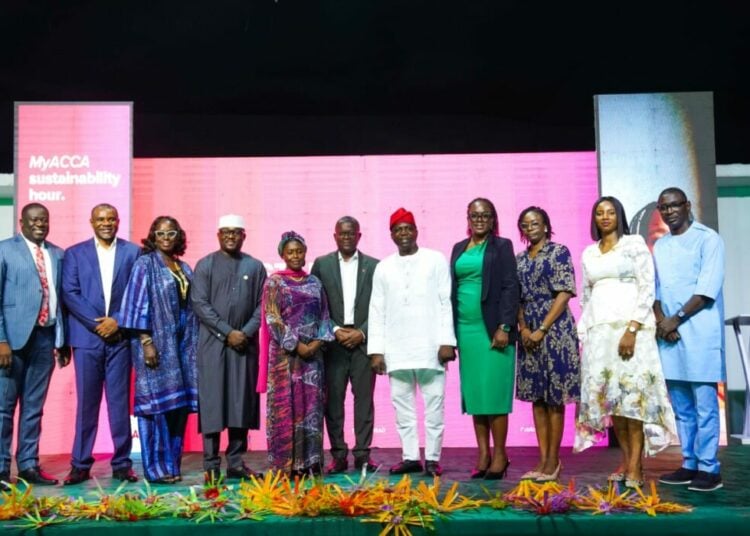The Association of Chartered Certified Accountants (ACCA) has launched the Sustainability Hour, a six-month educational initiative designed to raise awareness of the United Nations Sustainable Development Goals (SDGs) among Nigerian students and inspire early action toward environmental responsibility.
The programme, which began in October 2025, targets students aged 10 to 16 across public and private schools.
It introduces monthly interactive learning modules on sustainability themes such as climate action, water and waste management, energy efficiency, poverty reduction, and food security—key pillars of the global 2030 Agenda for Sustainable Development.
At the launch event held in Ikeja, Lagos, ACCA Nigeria’s Country Head, Mr. Thomas Isibor, said the initiative is part of ACCA’s broader commitment to preparing young Nigerians for leadership in a world increasingly shaped by climate realities.
According to Isibor, the Sustainability Hour seeks to equip future leaders with practical knowledge and the right attitudes towards sustainability, fostering responsible citizenship and innovative thinking.
He added that the programme is designed to promote advocacy, behavioural change, and environmental stewardship among young people.
The pilot phase, which will run through March 2026, will be implemented in more than 144 schools across Nigeria, with a post-programme evaluation to assess its reach and potential expansion to additional communities.
The initiative comes amid growing concern over slow global progress on the SDGs. The Sustainable Development Goals Report 2025, the tenth stocktaking since the adoption of the 2030 Agenda, revealed that only 35 percent of SDG targets are on track or making modest progress, while nearly half are lagging and 18 percent are regressing.
Speaking on the broader context, Jamil Ampomah, ACCA’s Director for Africa, underscored the need for accelerated action on the SDGs, warning that progress has been undermined by conflicts, climate shocks, and economic downturns.
“Education represents a transformative entry point,” Ampomah said. “By equipping young people with the skills and mindset to act, we can bridge the gap between aspiration and implementation.”
ACCA’s global climate agenda also reflects its internal commitments. The organisation aims to achieve net-zero emissions by 2045 and reduce its carbon footprint by 50 percent by 2030. Between 2019 and 2023, it recorded a 37 percent reduction in emissions through sustainable operations and policy reforms.
The Sustainability Hour has drawn commendation from senior government officials, including Mrs. Rukaiya El-Rufai, Special Adviser to the President on National Economic Council and Climate Change, who described the initiative as a timely step toward empowering young Nigerians to address environmental and social challenges through knowledge.
“Education remains vital for sustainable development. Teaching SDGs empowers future generations to confront issues like climate change, poverty, and inequality while promoting global citizenship and problem-solving skills”, El-Rufai said.
Dr. Oreoluwa Finnih, Special Adviser to the Lagos State Governor on SDGs, also applauded ACCA for aligning the programme with the state’s THEMES Agenda and Governor Babajide Sanwo-Olu’s commitment to integrating sustainability into education.
Finnih encouraged students to take ownership of their learning, noting that sustainability is the foundation for shared prosperity and environmental stewardship.
In participating schools, teachers are adopting project-based learning models that allow students to apply sustainability principles in real-life contexts.
At Temple School, pupils design projects addressing hunger, gender equality, and recycling, while in other schools, creative exercises such as fashion shows featuring recycled materials highlight practical applications of the SDGs.
A Queen’s College student, Jennifer Obiorah, said she learnt that waste materials like paper, nylon, and plastics can be transformed into useful products.
Another student from King’s College, Okon Mitchell, added that the programme taught him that “nothing is a waste until you waste it.”





